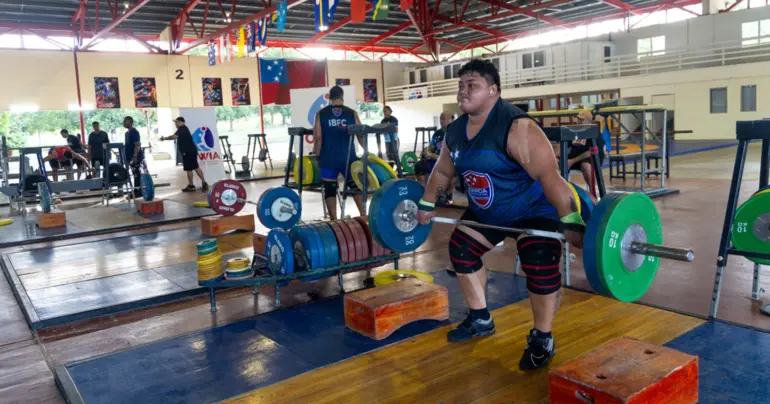2nd straight Olympic double puts Farah among the greats
There is no doubt about it: Mo Farah is among the best long-distance runners of all time.
The British great produced one of his trademark controlled runs, topped with a blistering finish, to win the 5,000-meter gold medal on Saturday and cap his second straight Olympic long-distance double.
"It's every athlete's dream but I can't believe it," the 33-year-old Farah said. "I just want to go home now and see my beautiful kids and hang my medals around their necks."
On Saturday, there was no crash to worry about — even though a fall in last week's 10,000 failed to stop him from claiming gold. His unstoppable kick over the last two laps did it this time, and as hard as his two Ethiopian rivals tried to shake him off early, there was no way to deny Farah at the Rio de Janeiro Games.
Farah came into the final stretch in the lead, and that means it's over. His arms open wide, his eyes closed in ecstasy, Farah crossed the line as the first runner in 40 years to win back-to-back long-distance doubles at the Olympics.
Farah already won the 10,000-meter race in Rio to go along with his two gold medals from the same events in London four years ago. The last man to win both distance races in consecutive Olympics was Finnish great Lasse Viren at the 1972 Munich and 1976 Montreal Games.
Farah won in 13 minutes, 3.30 seconds. Paul Chelimo of the United States took silver and Hagos Gebrhiwet of Ethiopia got bronze.
On the medal stand, Farah put his fingers on top of his head for the heart-shaped "Mobot" move, as well-known to long-distance running fans as Usain Bolt's "To the World" pose is to everyone else.
After another standout Olympics, Farah is ranking ever higher among the best runners in history. Kenenisa Bekele, with three Olympic and five world titles? Swept by him. Farah now has four Olympic gold medals and five world championship titles.
In the shrouds of history, there is still Emil Zatopek of the Czech Republic and Paavo Nurmi of Finland, but the changes in competition make an accurate comparison impossible. Nurmi has nine Olympic gold medals from the 1920 and 1924 Olympics, while Zatopek won the 5,000, 10,000 and marathon at the 1952 Helsinki Games.
It's easier to call him long distance running's answer to Bolt, the man who came over to embrace Farah in the warmup zone ahead of the race.
It's not as if he needed the help, but he still won while several of the runners behind him caused a bit of confusion.
Three competitors, including second-place finisher Chelimo, were initially disqualified. That meant American teammate Bernard Lagat would get bronze. But the decision was rescinded a short time later and Chelimo was reinstated to silver, while Lagat was pushed back to fifth.
None of that affected Farah.
Starting at the back, the experienced runner slowly made his way up and found himself in an ideal position with two laps to go, hugging the inside of the track and with only open space ahead of him.
When Gebrhiwet tried to cut him off, he smartly used his wiry frame to deny him and cement his position among the all-time greats.











